The Partition of India in 1947 stands as one of the most tragic and violent events in the history of the Indian subcontinent. It resulted in the displacement of over 15 million people, the deaths of over a million, and the permanent division of the land into two nations — India and Pakistan.
Traditionally, historians have held Muhammad Ali Jinnah, the Muslim League, and British colonial strategy responsible for the partition. However, since 2014, a growing section of nationalist discourse has started to project Mahatma Gandhi as a primary culprit in this tragic episode.
In this blog post, we’ll explore why this perspective emerged after 2014, what ideological and political shifts fueled it, and whether historical facts support this narrative or challenge it.
The Ideological Shift in India After 2014
When the Bharatiya Janata Party (BJP) came to power in 2014, it marked a significant ideological transformation in Indian politics. With the rise of Hindutva-driven nationalism, there emerged:
A push to reinterpret Indian history from a nationalist perspective
A decline in Congress-era Nehru-Gandhi dominance in historical discourse
A growing focus on leaders like Sardar Patel, Subhash Chandra Bose, Bhagat Singh, and Veer Savarkar
In this reorientation of historical narratives, Gandhi’s approach came under scrutiny — particularly his role in appeasement politics, his position during Partition, and his relations with the Muslim League.
Key Allegations Against Mahatma Gandhi
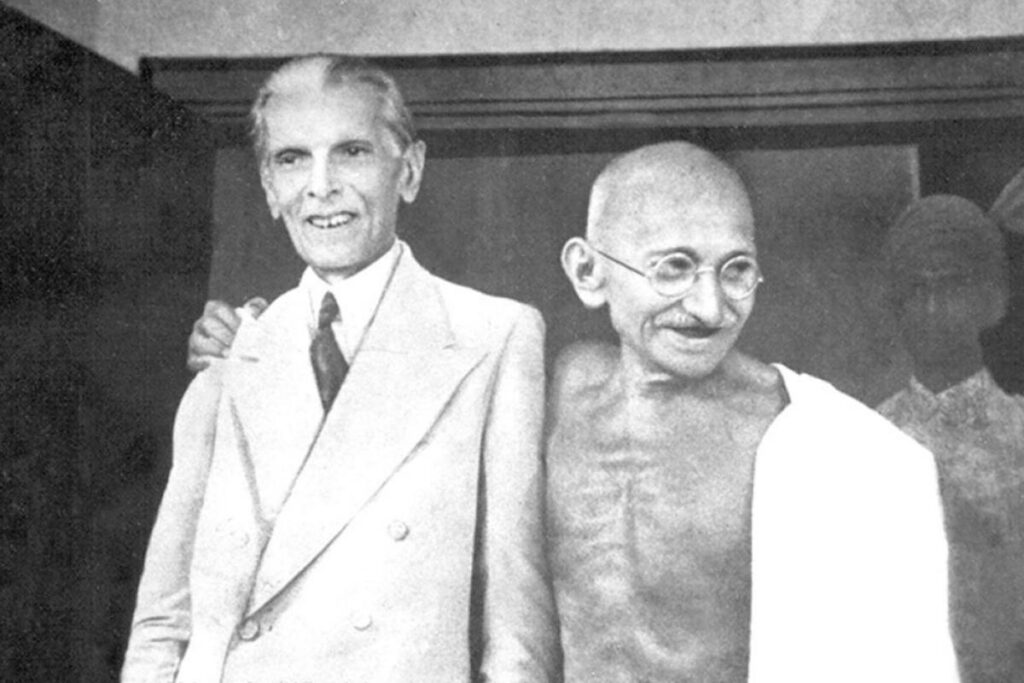
🟠 (i) Appeasement of Muslims
Gandhi’s involvement in the Khilafat Movement (1919–1924) is often cited as an example of communal appeasement.
He consistently advocated Hindu-Muslim unity, sometimes at the cost of alienating Hindu nationalists.
Critics claim Gandhi’s politics gave undue leverage to communal elements within the Muslim leadership.
🟠 (ii) Forcing India to Pay ₹55 Crores to Pakistan
After Partition, ₹55 crore was owed to Pakistan under the division of financial assets.
Due to the Kashmir war and rising hostilities, India initially froze the payment.
Gandhi insisted on honoring the commitment, even undertaking a fast-unto-death to ensure the amount was paid.
This move angered many, especially those who believed Pakistan was supporting violence against India.
🟠 (iii) Being Too Lenient Toward Jinnah
Gandhi was seen as too accommodating to Muhammad Ali Jinnah’s demands.
Critics argue that his willingness to negotiate with the Muslim League allowed it to grow stronger, ultimately leading to Partition.
His proposal of offering Jinnah the Prime Ministership is still controversial in nationalist circles.
Historical Review of Gandhi’s Role in Partition

Let’s now examine these allegations through the lens of documented history.
✅ Gandhi Opposed Partition
Gandhi vehemently opposed the idea of partition until the very end.
He called it the “vivisection of Mother India”.
When Congress eventually accepted partition under Mountbatten’s plan, Gandhi boycotted the celebrations of independence.
✅ The ₹55 Crore Controversy
The payment was part of the official financial agreement between India and Pakistan.
Gandhi believed that honoring promises, even to a hostile state, was essential to maintain India’s moral authority.
For Gandhi, ethics over vengeance was the guiding principle — even if unpopular.
Nathuram Godse’s Justification
Gandhi was assassinated by Nathuram Godse on January 30, 1948. In his court testimony, Godse said:
“Gandhi always favored the Muslims… He forced the Indian government to pay ₹55 crore to Pakistan even when they were attacking us in Kashmir. He betrayed the Hindu community.”
This statement is often cited by modern critics of Gandhi. However, several points counter Godse’s justification:
Gandhi also condemned Hindu violence during Partition.
He tried to protect both Hindus and Muslims in Bengal and Punjab.
He went on fasts to stop communal violence — regardless of who initiated it.
Gandhi’s Image in Modern Nationalist Discourse
Post-2014, there has been an aggressive recasting of national heroes:
Gandhi’s principles of non-violence, accommodation, and moral politics are seen as “soft” or naive.
New ideologues prefer more assertive figures like Savarkar or Bose, who represent strength and realism.
Gandhi is portrayed as someone who failed to prevent Partition and weakened Hindu interests.
In this new framework, Gandhi’s symbolic stature is being re-evaluated, often harshly.
Gandhi vs. Savarkar and Other Alternatives
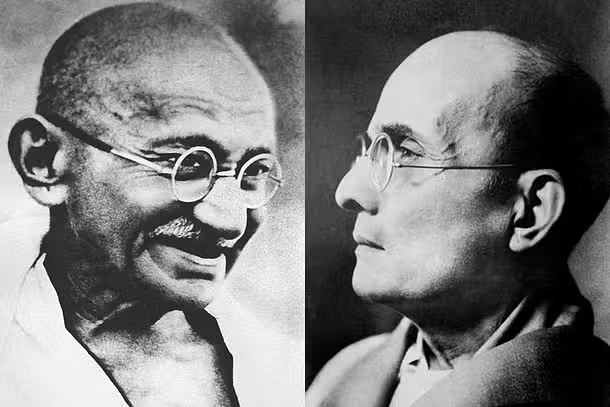
🟢 Gandhian Philosophy
Non-violence (Ahimsa)
Truth (Satyagraha)
Interfaith harmony
Rural self-reliance
🔴 Savarkar’s Nationalism
Assertive Hindutva identity
Political realism
Support for military resistance
Prioritizing national interest over moral abstraction
The rise of Savarkar’s legacy and similar thinkers has naturally brought Gandhi’s philosophy under fire, especially on the issue of Partition and Muslim appeasement.
Role of Media and Social Media
The internet has played a crucial role in spreading revisionist historical narratives:
YouTube videos, WhatsApp forwards, and Facebook posts regularly demonize Gandhi as the “man who divided India”.
Conspiracy theories claim Gandhi deliberately helped Jinnah, or that he was a British agent (without evidence).
Educational content is increasingly being shaped by political bias, especially on social platforms.
While some criticism may have valid grounds, much of it is emotionally charged, poorly sourced, and often ideologically motivated.
Final Analysis: Was Gandhi Really to Blame?
Let’s weigh the facts:
✅ Gandhi did:
Oppose Partition consistently.
Attempt to stop communal violence.
Call for peaceful coexistence.
Criticize the Muslim League’s demand for a separate nation.
❌ Gandhi did not:
Support or demand Partition.
Empower Jinnah directly.
Undermine Hindu rights out of malice….
📌 The post-2014 nationalist narrative seeks to find alternative heroes, and Gandhi — being the symbol of Congress, Nehruvian ideals, and secularism — becomes a convenient ideological target.
While every historical figure deserves fair criticism, simplifying Gandhi as the sole culprit of Partition is misleading and dangerous. It not only distorts history but also undermines the complexity of India’s freedom struggle.
👉 Let’s read history with context, not just emotion.
👉 Let’s question both established narratives and revisionist propaganda.
👉 Let’s honor our freedom by preserving the truth behind it.
Related posts:
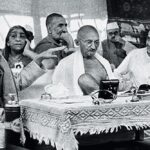 What Was The Role of Mahatma Gandhi in Partition 1947?
What Was The Role of Mahatma Gandhi in Partition 1947?
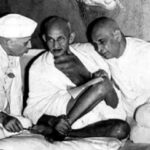 Was There Any Compulsion on Mahatma Gandhi to Make Jawaharlal Nehru the Prime Minister of India?
Was There Any Compulsion on Mahatma Gandhi to Make Jawaharlal Nehru the Prime Minister of India?
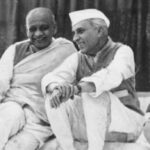 Was there any compulsion of Mahatma Gandhi to make Jawaharlal Nehru the Prime Minister?
Was there any compulsion of Mahatma Gandhi to make Jawaharlal Nehru the Prime Minister?
 Sardar Patel – The Unifier of India in the Shadow of Partition
Sardar Patel – The Unifier of India in the Shadow of Partition
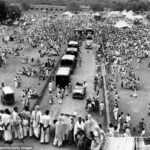 Unraveling The Truth: Behind the Partition of India in 1947
Unraveling The Truth: Behind the Partition of India in 1947
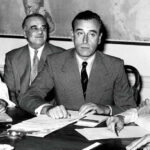 Celebrating India’s Independence Day vs. Commemorating the Partition Anniversary
Celebrating India’s Independence Day vs. Commemorating the Partition Anniversary
